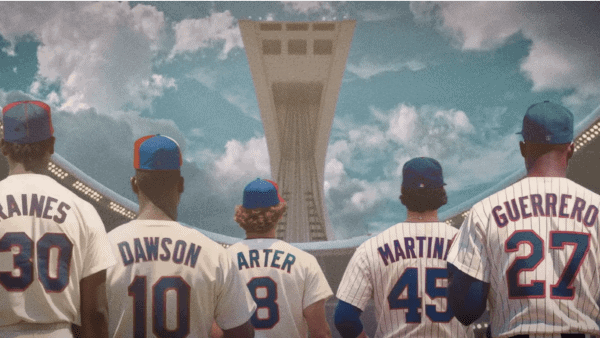
Netflix is stepping back up to the plate with a gripping new sports documentary, Who Killed The Montreal Expos?, a deep-dive investigation into one of the most puzzling collapses in modern sports history. Slated for release later this year, the film will explore the rise and shocking fall of the Montreal Expos, Canada’s first Major League Baseball franchise, and the lingering question that still haunts baseball fans from Quebec to Cooperstown; who was really responsible for their demise?
Launched in 1969 as an expansion team, the Expos became a cultural pillar in Montreal, uniting francophone and anglophone fans with a fresh baseball identity grounded in grit and possibility. The franchise developed legends like Hall of Famer Andre Dawson, Gary Carter, Tim Raines, Vladimir Guerrero, Pedro Martinez, and Larry Walker. By the early 1990s and especially during their unforgettable 1994 season, the Expos had built what many consider one of the most talented teams in MLB history.
But that was the year everything changed.
The players’ strike of 1994 abruptly cut short their best season ever, with the Expos holding the best record in baseball at 74-40 and poised to make a legitimate run at their first World Series appearance. Instead, the strike triggered a downward spiral that led to fire-sale trades, financial disaster, plummeting fan attendance, betrayal from ownership, and eventually relocation.
By 2004, the Expos played their last game in Montreal. The franchise was moved to Washington, D.C. and reborn as the Nationals. Nearly two decades later, the city and baseball historians still debate who actually killed the team.
Netflix’s Who Killed The Montreal Expos? promises to unravel that complicated story. The documentary includes new interviews, rare archival footage, and testimony from former Expos players, die-hard fans, sports journalists, MLB executives, and insiders close to ownership and league negotiations. The film raises the question: Was it MLB Commissioner Bud Selig’s leadership? The indifference or greed of ownership? The financial power imbalance between American and Canadian markets? Or was Montreal simply never meant to be a full-time baseball city?
The documentary will also examine the emotional toll the team’s downfall had on Montreal, a city that still chants “Nos Amours” (Our Beloved) and fills Olympic Stadium once a year for exhibitions in hope baseball will return. With renewed talks in recent years about MLB expansion into Canada again, this story now carries new weight.
More than a sports documentary, Who Killed The Montreal Expos? is an autopsy of a lost legacy—a forensic baseball mystery that has waited decades for answers.
